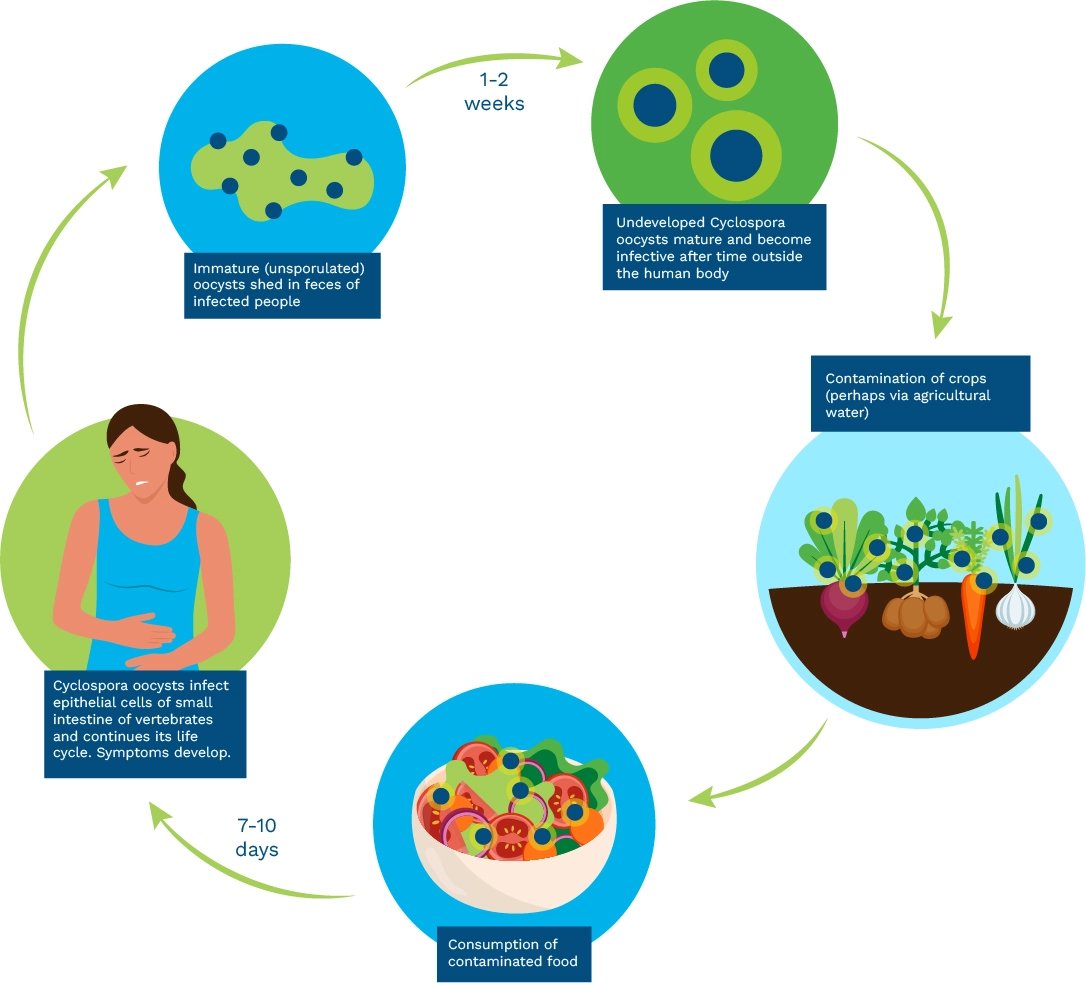Cyclospora Key Facts
- Cyclospora cayetanensis is a single-celled protozoan parasite.
- Cyclosporiasis is a disease caused by Cyclospora cayetanensis.
- Infection pathway: fecal to oral via consumption of contaminated fresh produce/water
- Symptoms: watery diarrhea, loss of appetite, weight loss, cramps, bloating, nausea, and tiredness. More severe cases: flu-like symptoms (headache, vomiting, fever)
- Minimum infective dose, oocyst sporulation rate, and survival under different environmental conditions are unknown.
- Duration: symptoms could last days or months; if untreated, symptoms could relapse
- Implicated products: basil, raspberries, lettuce, and other fresh produce, particularly if imported from tropical growing regions
- Agricultural water is believed to play a role in contamination: irrigation, produce processing.
- It appears seasonal, particularly during the rainy season, and is associated especially with tropical growing areas.
- Testing:
- Matrices of interest: agricultural water, fresh produce, fresh berries
- Main testing steps: oocyst concentration, DNA isolation, PCR detection
Cyclospora Contamination and Infection Route

Cyclospora
Challenges
- Currently, there are no animal models or in vitro cultivation methods to determine the infectious potential of Cyclospora cayetanensis.
- It is difficult to isolate and detect due to low contamination levels in food and water.
- FDA focus is on prevention:
- Common chemical treatments used on farms and fresh produce to control bacterial pathogens are ineffective against Cyclospora.
- The current form of control is via worker training on proper hygiene and sanitation.
- Cyclospora is an emerging food safety concern, and there is a need for research to “fill the knowledge gaps.”
 What’s Next?
What’s Next?
If you want to learn more about Cyclospora and Mérieux NutriSciences (MXNS) parasite testing capabilities, contact our Silliker Food Science Center.
